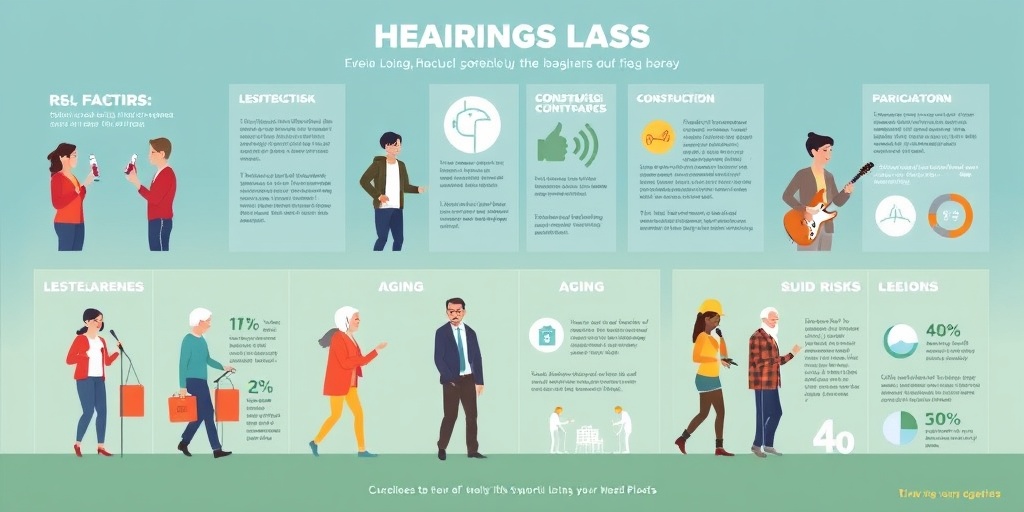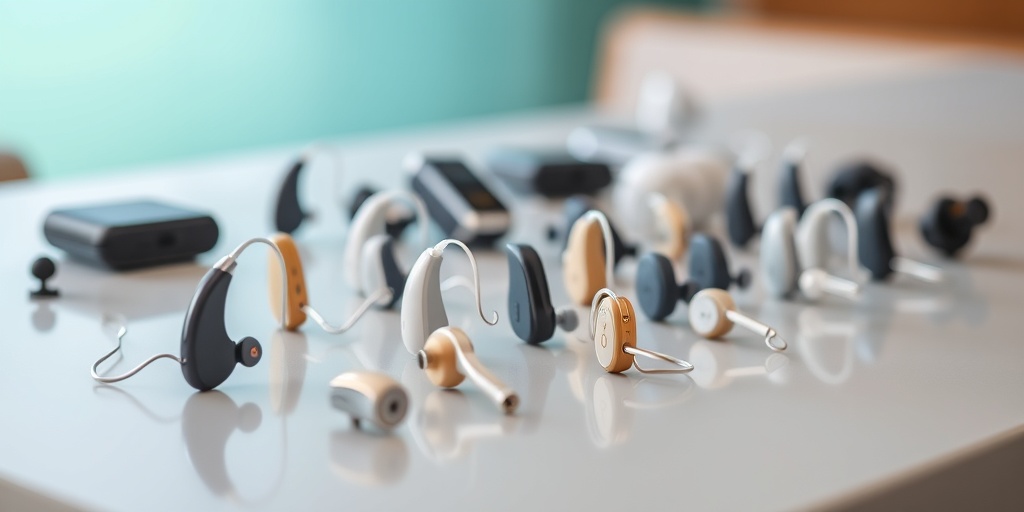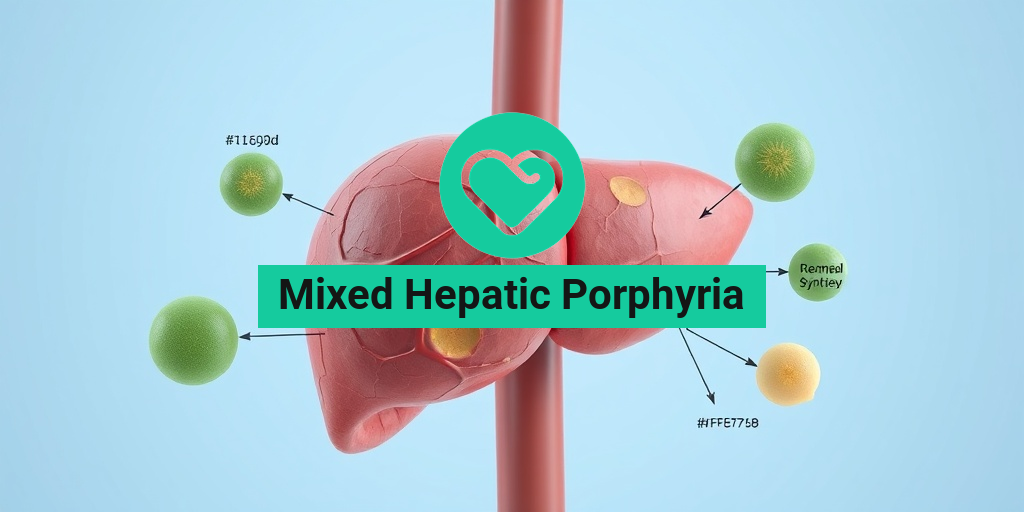What Is Hearing Loss?
Hearing loss is a common condition that affects millions of people worldwide. It refers to the partial or total inability to hear sounds in one or both ears. This condition can occur at any age and can result from various factors, including genetics, age, exposure to loud noises, and certain medical conditions.
Types of Hearing Loss
Understanding the different types of hearing loss is crucial for effective treatment and management. The main types include:
- Conductive Hearing Loss: This type occurs when sound waves cannot efficiently travel through the outer ear canal to the eardrum and the tiny bones of the middle ear. Causes may include ear infections, fluid in the middle ear, or earwax buildup.
- Sensorineural Hearing Loss: This is the most common type, resulting from damage to the inner ear or the auditory nerve. It can be caused by aging, exposure to loud noise, or certain illnesses.
- Mixed Hearing Loss: As the name suggests, this type is a combination of conductive and sensorineural hearing loss.
Causes of Hearing Loss
Several factors can contribute to hearing loss, including:
- Age: Presbycusis, or age-related hearing loss, is common among older adults.
- Noise Exposure: Prolonged exposure to loud sounds can damage the hair cells in the inner ear.
- Genetics: Some individuals may inherit conditions that lead to hearing loss.
- Medical Conditions: Conditions such as diabetes, high blood pressure, and certain infections can affect hearing.
Recognizing the signs of hearing loss early can lead to better management and treatment options. If you suspect you or a loved one may be experiencing hearing loss, it’s essential to consult a healthcare professional for a comprehensive evaluation.
Hearing Loss Symptoms
Identifying the symptoms of hearing loss is vital for early intervention. Symptoms can vary widely depending on the type and severity of the condition. Here are some common signs to watch for:
Common Symptoms
- Difficulty Understanding Speech: You may find it challenging to follow conversations, especially in noisy environments.
- Asking for Repetition: Frequently asking others to repeat themselves can be a significant indicator of hearing loss.
- Turning Up the Volume: If you often need to increase the volume on your television or radio, it may be time for a hearing evaluation.
- Withdrawal from Social Situations: Avoiding social gatherings due to difficulty hearing can lead to feelings of isolation.
- Tinnitus: Ringing or buzzing in the ears can accompany hearing loss and may indicate underlying issues.
When to Seek Help
If you notice any of these symptoms, it’s crucial to seek professional help. A hearing loss test can determine the extent of your hearing impairment and guide you toward appropriate treatment options. Early diagnosis can significantly improve your quality of life and help you maintain social connections.
For those concerned about the future, research is ongoing into potential hearing loss cures and treatments. Innovations in technology and medicine are paving the way for better solutions, with some experts predicting advancements by 2025 and beyond.
In conclusion, hearing loss is a prevalent issue that can significantly impact daily life. By recognizing the symptoms and seeking timely intervention, individuals can manage their hearing health effectively. For more information and resources on hearing loss, consider visiting Yesil Health AI, where you can find evidence-based answers to your health questions. Remember, taking action early can lead to better outcomes! 🎧

Hearing Loss Causes
Hearing loss is a common condition that affects millions of people worldwide. Understanding the causes of hearing loss is crucial for prevention and management. Here are some of the primary factors that contribute to this condition:
1. Age-Related Hearing Loss (Presbycusis)
As we age, our hearing abilities naturally decline. This type of hearing loss, known as presbycusis, typically affects both ears and is caused by changes in the inner ear and auditory nerve. It often makes it difficult to hear high-frequency sounds, such as the voices of women and children.
2. Noise-Induced Hearing Loss
Exposure to loud noises can lead to permanent damage to the hair cells in the inner ear. This type of hearing loss can occur suddenly after a loud event, like a concert, or gradually from prolonged exposure to loud environments, such as construction sites or loud music. Protecting your ears with earplugs in noisy settings is essential! 🎧
3. Ear Infections and Diseases
Chronic ear infections can lead to temporary or permanent hearing loss. Conditions such as otitis media (middle ear infection) can cause fluid buildup, affecting hearing. Other diseases, like otosclerosis, involve abnormal bone growth in the middle ear, which can also impair hearing.
4. Genetic Factors
Hearing loss can run in families. Genetic mutations can affect the development and function of the auditory system, leading to inherited forms of hearing loss. If you have a family history of hearing issues, it’s wise to monitor your hearing health closely.
5. Ototoxic Medications
Some medications can have side effects that damage the inner ear. These ototoxic medications include certain antibiotics, chemotherapy drugs, and high doses of aspirin. Always consult your healthcare provider about the potential risks associated with any medication.
6. Physical Trauma
Injuries to the head or ear can lead to hearing loss. Trauma can damage the structures of the ear or the auditory pathways in the brain. If you experience sudden hearing loss after an injury, seek medical attention immediately.
Hearing Loss Risk Factors
While anyone can experience hearing loss, certain risk factors increase the likelihood of developing this condition. Understanding these factors can help you take proactive steps to protect your hearing.
1. Age
As mentioned earlier, age is a significant risk factor. The likelihood of experiencing hearing loss increases as you get older, particularly after the age of 60. Regular hearing tests become increasingly important as you age.
2. Occupational Hazards
Jobs that expose individuals to loud noises, such as construction, manufacturing, and music, significantly increase the risk of hearing loss. Employers should provide protective equipment and promote safe listening practices to mitigate this risk.
3. Lifestyle Choices
Smoking and excessive alcohol consumption can contribute to hearing loss. Smoking reduces blood flow to the inner ear, while alcohol can affect the auditory nerve. Maintaining a healthy lifestyle can help protect your hearing. 🥦🚭
4. Chronic Health Conditions
Conditions such as diabetes, cardiovascular disease, and high blood pressure can affect hearing health. These diseases can impair blood flow to the ears, leading to hearing loss over time. Regular check-ups and managing these conditions are crucial for overall health, including hearing.
5. Family History
If hearing loss runs in your family, you may be at a higher risk. Genetic predispositions can play a significant role in your likelihood of developing hearing issues. If you have a family history of hearing loss, consider discussing it with your healthcare provider.
6. Social Isolation
Interestingly, social isolation can be both a risk factor and a consequence of hearing loss. Individuals who are socially isolated may be less likely to seek help for hearing issues, leading to further deterioration. Staying socially active can help maintain both mental and auditory health.
Understanding the causes and risk factors of hearing loss is essential for prevention and early intervention. Regular hearing tests and awareness of your hearing health can make a significant difference in your quality of life. 🌟

Hearing Loss Diagnosis
Hearing loss is a common condition that affects millions of people worldwide. Understanding how it is diagnosed is crucial for early intervention and effective treatment. In this section, we will explore the various methods used to diagnose hearing loss and what you can expect during the process.
Understanding the Symptoms
Before diving into the diagnostic process, it’s important to recognize the symptoms of hearing loss. Common signs include:
- Difficulty understanding conversations: You may find it hard to follow discussions, especially in noisy environments.
- Frequent requests for repetition: Asking others to repeat themselves can be a clear indicator.
- Ringing in the ears (tinnitus): This can accompany hearing loss and may be a sign of underlying issues.
- Withdrawal from social situations: If you find yourself avoiding gatherings due to difficulty hearing, it might be time to seek help.
The Diagnostic Process
When you suspect hearing loss, the first step is to consult a healthcare professional, typically an audiologist or an ear, nose, and throat (ENT) specialist. Here’s what you can expect during your visit:
- Medical History Review: Your doctor will ask about your medical history, including any previous ear infections, exposure to loud noises, and family history of hearing loss.
- Physical Examination: A thorough examination of your ears will be conducted to check for any physical obstructions or abnormalities.
- Hearing Tests: Various tests will be performed to assess your hearing ability. These may include:
- Pure-tone audiometry: This test measures your ability to hear different sounds at various pitches and volumes.
- Speech audiometry: You’ll be asked to repeat words at different volumes to evaluate your speech recognition.
- Tympanometry: This test assesses the movement of your eardrum in response to changes in air pressure, helping to identify issues in the middle ear.
Interpreting the Results
Once the tests are completed, your audiologist will interpret the results. Hearing loss is typically classified into three categories:
- Conductive Hearing Loss: This occurs when sound is not conducted efficiently through the outer ear canal to the eardrum and the tiny bones of the middle ear.
- Sensory Neural Hearing Loss: This type involves damage to the inner ear or the auditory nerve pathways to the brain.
- Mixed Hearing Loss: A combination of conductive and sensory neural hearing loss.
Understanding the type and degree of hearing loss is essential for determining the most effective treatment options.
Hearing Loss Treatment Options
Once diagnosed, there are several treatment options available for hearing loss, depending on its type and severity. Here, we will discuss the most common treatments and emerging therapies that may offer hope for the future.
Hearing Aids
Hearing aids are the most common treatment for hearing loss, particularly for those with sensory neural hearing loss. These small electronic devices amplify sound, making it easier for individuals to hear. They come in various styles, including:
- Behind-the-ear (BTE): These sit behind the ear and are suitable for all types of hearing loss.
- In-the-ear (ITE): Custom-made to fit the outer ear, these are less visible and suitable for mild to moderate hearing loss.
- Completely-in-canal (CIC): These are small and fit deep in the ear canal, making them nearly invisible.
Cochlear Implants
For individuals with severe to profound hearing loss who do not benefit from hearing aids, cochlear implants may be an option. These surgically implanted devices bypass damaged portions of the ear and directly stimulate the auditory nerve, allowing for improved hearing.
Assistive Listening Devices
In addition to hearing aids and cochlear implants, various assistive listening devices can enhance hearing in specific situations. These include:
- FM systems: These use radio waves to transmit sound directly to the listener, reducing background noise.
- Infrared systems: These transmit sound via infrared light, ideal for use in theaters or classrooms.
- Loop systems: These create a magnetic field that transmits sound directly to hearing aids equipped with telecoils.
Emerging Treatments and Future Cures
Research is ongoing in the field of hearing loss treatment, with promising developments on the horizon. Some potential future treatments include:
- Gene therapy: This approach aims to repair or replace defective genes responsible for hearing loss.
- Stem cell therapy: Researchers are exploring the use of stem cells to regenerate damaged hair cells in the inner ear.
- Pharmaceuticals: New drugs are being developed to protect against noise-induced hearing loss and improve auditory function.
As we look towards the future, the hope for effective hearing loss cures continues to grow, with advancements expected by 2025 and beyond. 🌟

Hearing Loss Prevention
Hearing loss is a growing concern worldwide, affecting millions of individuals across various age groups. While some factors contributing to hearing loss are unavoidable, such as genetics and aging, there are several proactive measures you can take to prevent hearing loss and protect your auditory health.
Understanding the Causes of Hearing Loss
Before diving into prevention strategies, it’s essential to understand the common causes of hearing loss:
- Noise Exposure: Prolonged exposure to loud noises, whether from machinery, concerts, or even earbuds, can damage the delicate hair cells in the inner ear.
- Aging: Presbycusis, or age-related hearing loss, typically affects individuals over 60 and is a natural part of the aging process.
- Medical Conditions: Conditions such as diabetes, high blood pressure, and certain infections can contribute to hearing impairment.
- Genetics: A family history of hearing loss can increase your risk.
Effective Strategies for Preventing Hearing Loss
Here are some practical tips to help you maintain your hearing health:
- Limit Noise Exposure: Whenever possible, reduce your exposure to loud sounds. If you work in a noisy environment, consider using earplugs or noise-canceling headphones.
- Practice Safe Listening: When using headphones or earbuds, keep the volume at a safe level. A good rule of thumb is the 60/60 rule: listen at no more than 60% volume for no longer than 60 minutes at a time.
- Get Regular Hearing Tests: Regular check-ups with an audiologist can help detect early signs of hearing loss. Early intervention is key!
- Maintain Overall Health: A healthy lifestyle can contribute to better hearing. Regular exercise, a balanced diet, and managing chronic conditions can all play a role.
- Protect Your Ears: If you’re engaging in activities that expose you to loud noises, such as shooting or attending concerts, always wear appropriate hearing protection.
Stay Informed About Hearing Loss
Being aware of the signs and symptoms of hearing loss is crucial. If you notice any changes in your hearing, such as difficulty understanding conversations or needing to turn up the volume on the television, consult a healthcare professional promptly. Early detection can lead to better outcomes and may prevent further deterioration of your hearing.
Hearing Aids and Assistive Devices
For those already experiencing hearing loss, hearing aids and assistive devices can significantly improve quality of life. These tools are designed to amplify sound and make communication easier.
Types of Hearing Aids
There are several types of hearing aids available, each catering to different levels of hearing loss:
- Behind-the-Ear (BTE): These are worn behind the ear and are suitable for all types of hearing loss. They are often more powerful and can accommodate larger batteries.
- In-the-Ear (ITE): Custom-made to fit the outer ear, ITE hearing aids are less visible and suitable for mild to moderate hearing loss.
- In-the-Canal (ITC): These are smaller and fit partially in the ear canal, making them less noticeable. They are ideal for mild to moderate hearing loss.
- Completely-in-Canal (CIC): These are the smallest type of hearing aids, fitting entirely within the ear canal, and are suitable for mild to moderate hearing loss.
Assistive Listening Devices
In addition to hearing aids, various assistive listening devices can enhance your hearing experience:
- FM Systems: These systems use radio signals to transmit sound directly to the hearing aid, making them ideal for classrooms or public speaking events.
- Loop Systems: These create a magnetic field that transmits sound directly to hearing aids equipped with telecoils, often used in theaters and places of worship.
- Captioned Telephones: These phones display text of the conversation, allowing individuals with hearing loss to read what is being said.
Choosing the Right Device
When selecting a hearing aid or assistive device, it’s essential to consult with an audiologist. They can help determine the best option based on your specific needs, lifestyle, and level of hearing loss. Remember, the right device can make a world of difference in your ability to communicate and engage with others. 🌍
In conclusion, whether you’re looking to prevent hearing loss or seeking solutions to manage it, staying informed and proactive is key. Your hearing health is vital to your overall well-being, so take the necessary steps to protect it! 🎧

Frequently Asked Questions about Hearing Loss
What are the common causes of hearing loss?
Hearing loss can result from various factors, including:
- Age-related changes: As people age, the structures in the ear may deteriorate.
- Noise exposure: Prolonged exposure to loud sounds can damage the inner ear.
- Infections: Ear infections can lead to temporary or permanent hearing issues.
- Genetic factors: Some individuals may inherit conditions that affect their hearing.
How can I tell if I have hearing loss?
Signs of hearing loss may include:
- Difficulty understanding conversations, especially in noisy environments.
- Frequently asking others to repeat themselves.
- Feeling that people are mumbling or speaking too softly.
- Turning up the volume on devices more than usual.
What is a hearing loss test?
A hearing loss test, often conducted by an audiologist, evaluates your ability to hear sounds at different frequencies and volumes. This test typically involves:
- Pure-tone audiometry: Listening to sounds through headphones.
- Speech audiometry: Understanding spoken words at various volumes.
Are there any cures for hearing loss?
While there is currently no definitive cure for all types of hearing loss, various treatments can help manage the condition, including:
- Hearing aids: Amplify sounds to assist those with hearing difficulties.
- Cochlear implants: Surgically implanted devices that provide a sense of sound.
- Assistive listening devices: Tools that enhance sound in specific situations.
Can hearing loss lead to other health issues?
Yes, studies have shown that untreated hearing loss can be linked to other health concerns, such as:
- Dementia: There is evidence suggesting a connection between hearing loss and cognitive decline.
- Depression: Social isolation due to hearing difficulties can lead to feelings of loneliness.
What is the ICD-10 code for hearing loss?
The ICD-10 code for hearing loss varies based on the type and severity. Common codes include:
- H90: Conductive and sensorineural hearing loss.
- H91: Unspecified hearing loss.
What should I do if I suspect I have hearing loss?
If you suspect you have hearing loss, it is important to:
- Schedule an appointment with an audiologist for a comprehensive evaluation.
- Discuss any concerns with your healthcare provider.
- Consider lifestyle changes to protect your hearing, such as avoiding loud noises.
Is hearing loss common in one ear?
Yes, unilateral hearing loss (hearing loss in one ear) can occur due to various reasons, including:
- Infections or fluid buildup.
- Trauma or injury to the ear.
- Neurological conditions.
If you have more questions about hearing loss or need assistance, feel free to reach out to a healthcare professional! 😊




